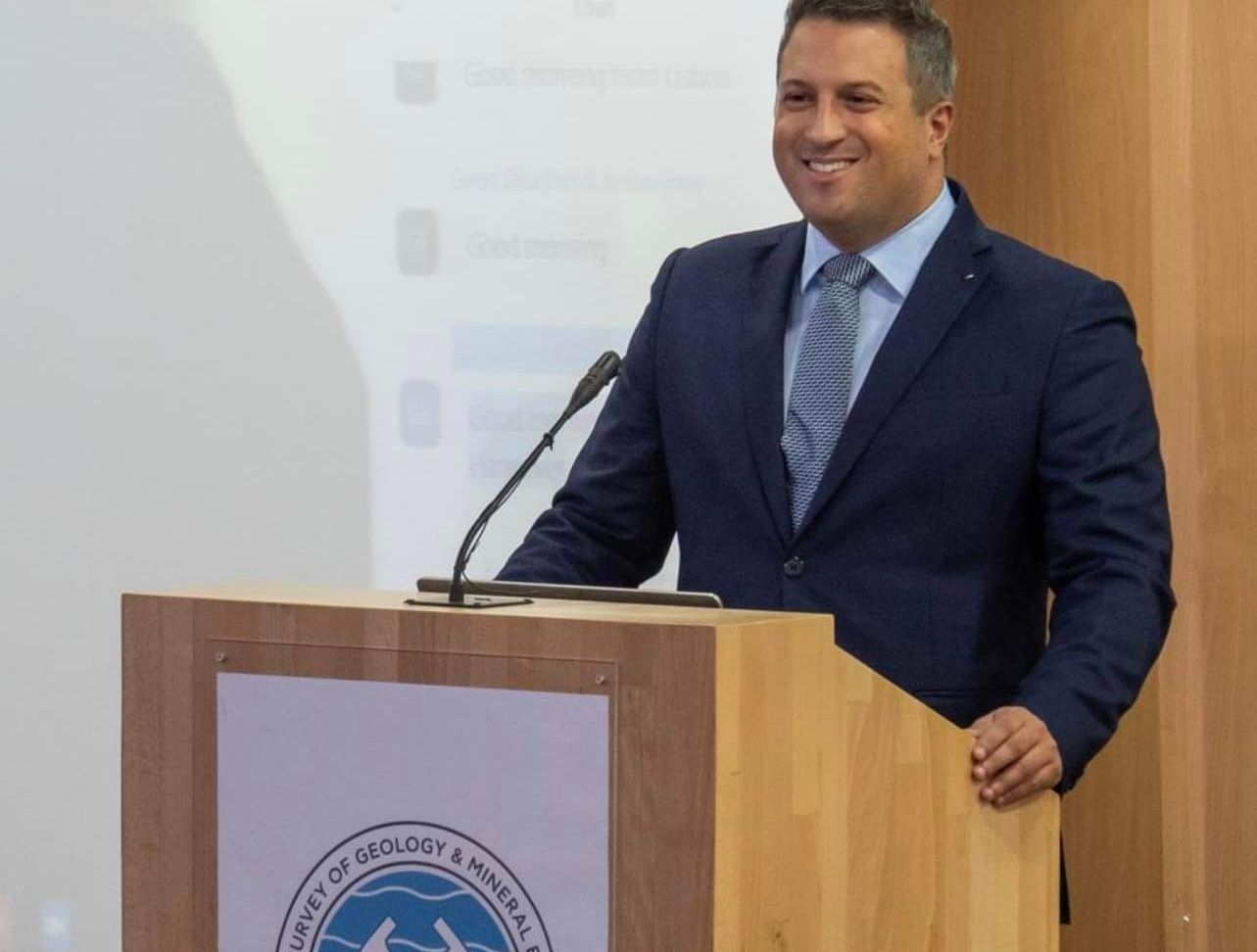The General Director of the Hellenic Survey of Geology and Mineral Exploration (EAGME), Mr. Dionysios Goutis, recently presented the “roadmap” of EAGME’s research program for the new National Strategic Reference Framework (NSRF) 2021–2027 to the political leadership of the Ministry of Environment and Energy (YPEN) and other competent authorities.
The strategic plan of EAGME is structured around five main thematic pillars: Mineral Resources, Environment, Energy, Water Resources, and Climate Change.
The projects currently under approval and implementation include:
- KOPY | Research Actions on Critical Raw Materials
- GEOTHENERG | Research, Assessment, and Utilization of Geothermal Energy and Geoenergy
- GEODE | Geological Mapping on Land and Marine Areas
- GEOKIN | Delineation, Monitoring, and Management of Geological Hazards in Vulnerable Areas of Greece
- YDROCHART | Hydrogeological Research and Development of Hydrogeological Maps in Selected Groundwater Systems
- DIPYNE | National Groundwater Monitoring Network of Greece
As Mr. Goutis emphasized: “This program outlines the environmental and energy footprint for the next day. EAGME stands as the most reliable scientific organization with a catalytic role in the National Plan for Energy and Climate. Our goal is to play a leading and upgraded role in this national effort.”
He further added: “Our operational and research plan, developed after countless hours of work with EAGME’s scientific staff, covers every aspect of the country’s geological, environmental, and energy landscape.”
Mr. Goutis highlighted that the exploration of Critical Raw Materials is vital for supporting the Green Deal and implementing the Circular Economy, while the development of geothermal energy and the identification of underground energy storage sites contribute to energy diversification, efficiency, the promotion of renewable energy, and the strengthening of energy security.
He also noted that geological mapping across terrestrial and marine zones supports green development and environmental geodiversity, while systematic monitoring of geohazards in sensitive areas contributes to addressing climate change.
The Hydrogeological Research and Mapping of selected groundwater systems plays a key role in tackling the impacts of the climate crisis on the country’s underground water potential, whereas the National Groundwater Monitoring Network (DIPYNE) aims at the continuous monitoring and evaluation of groundwater quality and quantity across all water districts of Greece.
Concluding his presentation, Mr. Goutis underlined: “The implementation of these projects relies on the creative collaboration of all stakeholders and, above all, on the expertise of EAGME’s scientific and technical personnel. We invest in the energy transition, renewable energy, and the fight against climate change.”


